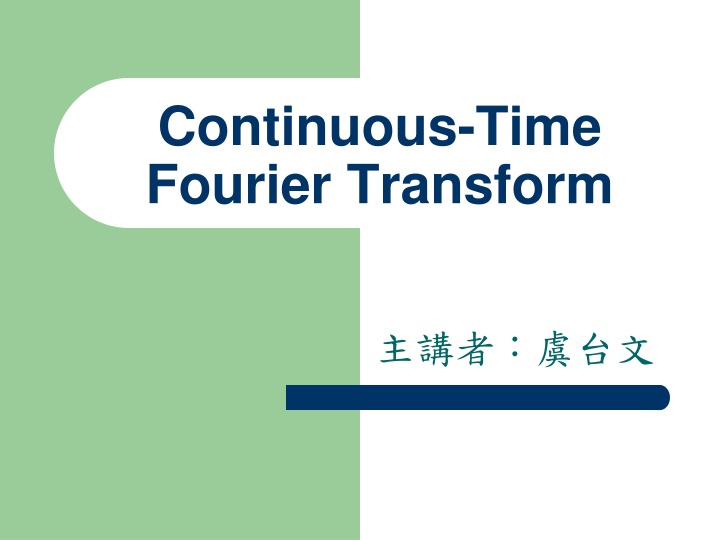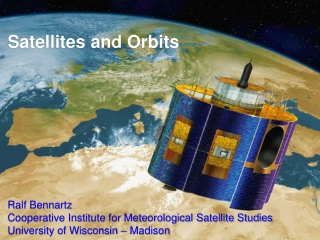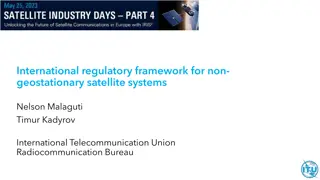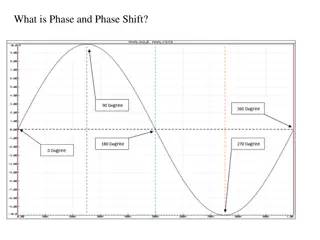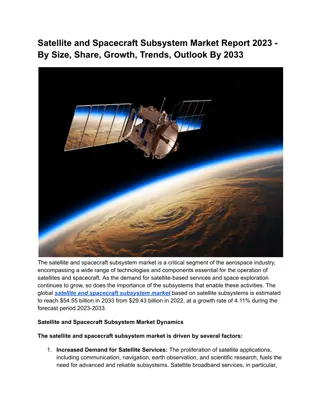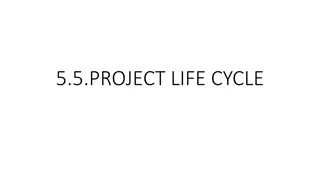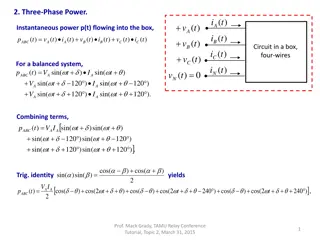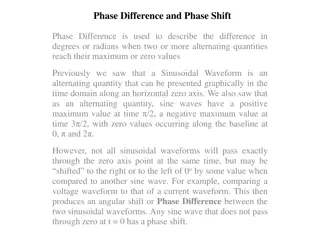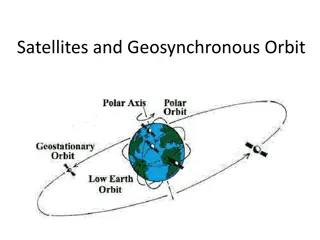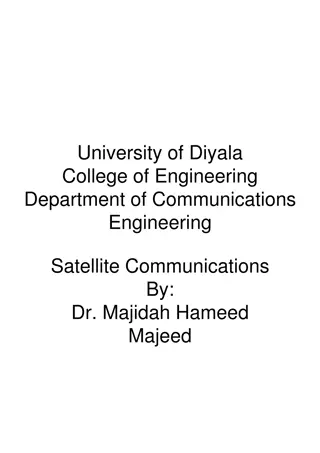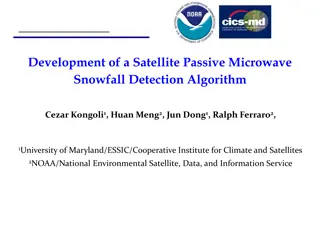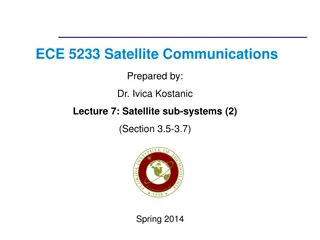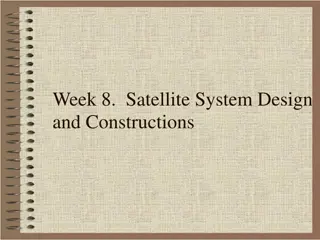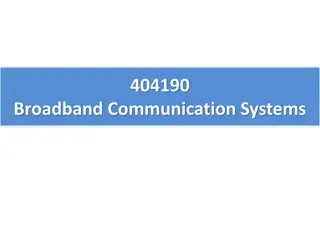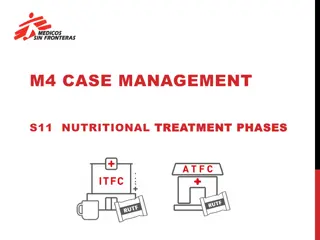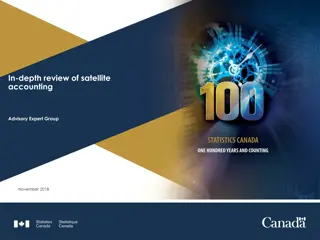Satellite Access Phase 2 Update
Satellite Access Phase 2 progress and objectives for normative phase completion. Discussion on mobility management, power saving, and system behavior in 5G satellite access. Importance of collaborative mindset and upcoming meetings for finalizing specifications.
Download Presentation

Please find below an Image/Link to download the presentation.
The content on the website is provided AS IS for your information and personal use only. It may not be sold, licensed, or shared on other websites without obtaining consent from the author.If you encounter any issues during the download, it is possible that the publisher has removed the file from their server.
You are allowed to download the files provided on this website for personal or commercial use, subject to the condition that they are used lawfully. All files are the property of their respective owners.
The content on the website is provided AS IS for your information and personal use only. It may not be sold, licensed, or shared on other websites without obtaining consent from the author.
E N D
Presentation Transcript
Continuous-Time Fourier Transform
Content Introduction Fourier Integral Fourier Transform Properties of Fourier Transform Convolution Parseval s Theorem
Continuous-Time Fourier Transform Introduction
The Topic Continuous Time Discrete Time Periodic Discrete Fourier Transform Fourier Series Continuous Fourier Transform Aperiodic Fourier Transform
Review of Fourier Series Deal with continuous-time periodic signals. Discrete frequency spectra. A Periodic Signal f(t) t T 2T 3T
Two Forms for Fourier Series Sinusoidal Form 2 2 a 2 nt nt = = = + + 0 ( ) cos sin f t a b n n T T 1 1 n n 2 / 2 T = ( ) cos a f t n tdt 0 n T 2 2 / 2 T / 2 T T = ( dt ) a f t 0 T / 2 / 2 T = ( ) sin b f t n tdt 0 n T / 2 T 1 Complex Form: = n / 2 T = jn t = jn t ( ) f t c ne ( ) c f t e dt 0 0 n T / 2 T
How to Deal with Aperiodic Signal? A Periodic Signal f(t) t T If T , what happens?
Continuous-Time Fourier Transform Fourier Integral
Fourier Integral 1 / 2 T = = jn t ( ) c f t e dt = jn t ( ) f t c e 0 0 n T T n T / 2 T n 2 1 T 1 / 2 T = n = =2 0 = jn jn t ( ) f e d e 0 0 0 T T T / 2 T 1 / 2 T = n = jn jn t ( ) f e d e 0 0 0 T 2 2 / 2 T = = Let 0 T 1 / 2 T = n = jn jn t ( ) f e d e 0 0 T 2 / 2 T = 0 T d 1 = j j t ( ) f e d e d T 2
Fourier Integral 1 = j j t ( ) ( ) f t f e d e d 2 F(j ) 1 d Synthesis = j t ( ) ( ) f t F j e 2 Analysis = j t ( ) ( ) F j f t e dt
Fourier Series vs. Fourier Integral Fourier Series: = n Period Function = jn t ( ) f t c ne 0 1 / 2 T Discrete Spectra = jn t ( ) c f t e dt 0 n T T / 2 T Fourier Integral: Non-Period Function 1 d = j t ( ) ( ) f t F j e 2 Continuous Spectra = j t ( ) ( ) F j f t e dt
Continuous-Time Fourier Transform Fourier Transform
Fourier Transform Pair Inverse Fourier Transform: 1 d Synthesis = j t ( ) ( ) f t F j e 2 Fourier Transform: Analysis = j t ( ) ( ) F j f t e dt
Existence of the Fourier Transform Sufficient Condition: f(t) is absolutely integrable, i.e., | ( | ) f t dt
Continuous Spectra = j t ( ) ( ) F j f t e dt FI(j ) = + ( ) = ( ) j ( ) F j F j jF j R I ( ) ( ) je | ( | ) F FR(j ) Phase Magnitude
Example f(t) 1 t -1 1 1 1 1 = j t = ( ) ( ) = F j f t e dt j t j t e e 1 dt j 1 2 sin j = = j j ( ) e e
Example 3 2 F( ) 1 0 f(t) -1 -10 -5 0 5 10 1 3 2 t |F( )| -1 1 1 1 0 1 j -10 -5 0 5 10 1 = j t = ( ) ( ) = F j f t e dt j t j t e e 1 dt 4 arg[F( )] 1 2 -5 2 sin -10 j = = j j ( ) e e 0 0 5 10
Example f(t) e t t = j t ( ) ( ) = F j f t e dt t j t e e dt 0 1 = + = ( ) j t e dt + j 0
Example f(t) 1 =2 e t |F(j )| 0.5 t 0 -10 -5 0 5 10 2 = j t ( ) ( ) = F j f t e dt t j t e e dt arg[F(j )] 0 0 1 -2 = + = ( ) j t -10 -5 0 5 10 e dt + j 0
